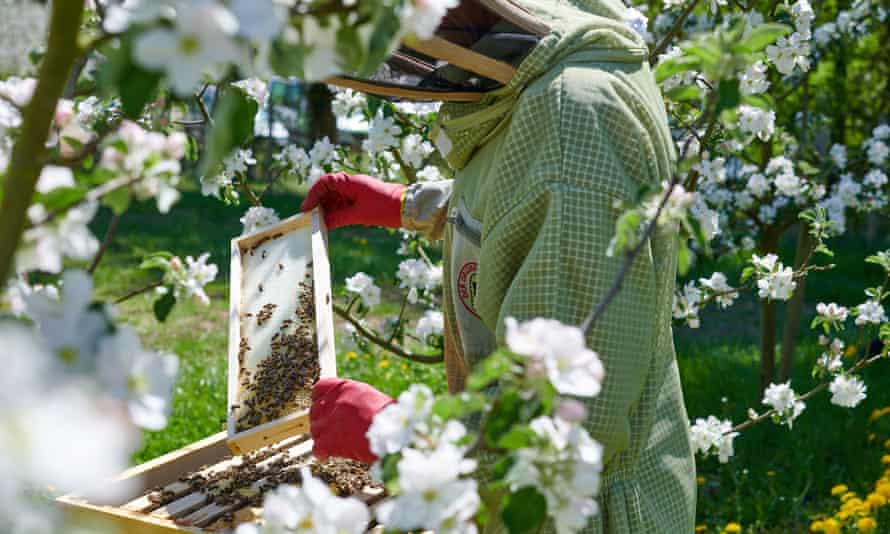Extreme sleepouts in Saarland
The German language has some marvellous words, ranging from wegbier (“beer to drink on the way”) to hamsterkauf (“panic-buying”). Another to add to that lexicon is waldeinsamkeit: a feeling of being alone and finding inner peace in the forest. Arguably, travellers can’t get any more at one with the woods than sleeping in a portaledge tent (or cloefhänger) suspended between trees in the Saarland forest. It’s a wonderful way to immerse yourself into forest life: think morning mists, twit-twooing owls, mysterious nocturnal noises, and occasional bursts of “we’re up how high?!” when peering at the clouds below (the tents are perched at head-spinning heights overlooking a dramatic bend in the Saar river). The website specifies cloefhängers aren’t for people who don’t have schwindelfreiheit (“freedom from dizziness”; AKA a head-for-heights) or trittsicherheit (“tread safety”; AKA surefootedness), but there’s a less vertiginous version involving hammocks in the same forests.
Price: €119 (£102) a night, June-September
cloefhaenger.com
Stargazing in the Eifel
Eifel National Park, which lies near the Belgian border, has been a designated international dark sky park since 2014 on account of its starry skies unspoiled by light pollution. Many nights are so clear it’s possible to spot the Milky Way. More constellations can be spied through the giant telescopes at Vogelsang Observatory, which also hosts Stars Without Borders astronomy workshops. The Eifel’s unique nocturnal ambience can be further appreciated on a visit to the moonlight sauna at the Eifel-Therme Zikkurat spa, or the annual ghost parade in the village of Blankenheim. It’s also near the vineyards of the Mosel Valley, so why not accompany your celestial rubbernecking with a bottle of top-quality riesling?
Woodcarving in the Bliesgau Biosphere
Elsewhere in Saarland, there’s a chance to channel your inner Albrecht Dürer through the woodcutting workshops held in the forests of the Bliesgau Biosphere. No previous whittling experience is required, yet participants learn how to make wildwood chairs, benches and sets of personally forged knives, which they can then take home with them. There’s even a xylophone-making course. Don’t be fooled by the “biosphere” moniker: you won’t be fashioning your furniture in a plastic dome. In fact, the Bliesgau Biosphere is an Unesco-designated area, designed to bring locals and nature closer together, in a sustainable way. Which is exactly what you’ll be doing, because the course also involves replanting deciduous trees to preserve the environment.
Prices start at €130/£111 per person. Glamping accommodation is available within the biosphere. More info here
saarpfalz-touristik.de
Walking with wolves in Wendland
Big, bad wolves occupy a special place in the German psyche, having been a villainous, people-gobbling fixture in the fairytales of the Brothers Grimm. Despite this, lupines were welcomed back to the country two decades ago, after an absence of 150 years. Today there are more than 100 wolf packs across the country, with some prowling the wilds of Elbe Wendland, Lower Saxony. If you assumed you’d need to fly to the northern tundra to view these magnificent beasts, think again: on Wendland safaris, tourists can track the wily beasts, learning more about them as they hear ghostly howls echo around the forests. Tours range from three-hours to an entire “Wolf Intensive Week”.
Prices for the Wolf Intensive Week range from €156/£133 (two nights) to €602/£516 (seven nights). Accommodation included in price
kenners-landlust.de

Beekeeping in Germany’s lake district
Granted, bee tourism is somewhat of a niche interest. But any aspiring apiarists should make a beeline (apologies) for the Sternberg lake district in Mecklenburg, a gloriously pretty region abuzz with bee-themed revelry. It offers a number of self-guided cycling/walking routes – ranging from five up to 90 miles – which take visitors through fields and orchards brimming with bees, plus museums and playgrounds dedicated to the stripy honey-harvesters (the Demeter cider factory makes a brilliant pit-stop). There are also beekeeping workshops, “cooking with honey” lessons, and a special course tailored for those with bee phobias. When that’s all done, the cafe-filled city of Schwerin and sweeping white beaches of Mecklenburg’s Baltic coast are a short drive away. Sweet.
Beekeeping courses available from €60/£51
bienenstrasse.de
Culinary donkey trekking in Brandenburg
Donkey trekking holidays are popular in Germany, and available from Hamburg to Bavaria. However, only one district offers a “culinary donkey tour” and that’s Uckermark, in Brandenburg. Traipsing with your Eeyore through the region’s emerald beech forests and sunflower fields, the hikes cover between five and 11 miles each day. Angela Merkel is a fan of the area, and has a holiday home nearby. The gourmet element comes from your overnight stays in local country homes and farmhouses, where your hosts will ply you with organic food from nearby fields and smokehouses. Meanwhile, your saddlebags will be packed with picnics (and carrots for Dobbin too, naturally). The treks can be tackled on a daytrip from Berlin, or a three-day sojourn. Take your family – it could be the best holiday they’ve had in donkey’s years.
A three-day, two-night hike costs from €228 (£195) a person. A three-hour hike costs from €35 (£30) a person
tourismus-uckermark-de
For more about sustainable, feel good travel across Germany, head to Feel Good, which is packed with inspiring ideas and practical advice.






